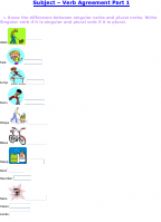
Subject Verb Agreement
In order to make good and correct English grammar one has to learn the basic rules of subject and verb.
this exercise is comprise of 4 parts subject-verb agreement. Enjoy learning!
Level: intermediate
Age: 10-100
|

subject Verb Agreement Part 2
this is part 2 of the subject verb agreement. this exercise was taken from really learn english
Level: intermediate
Age: 10-100
|
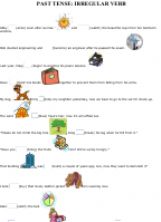
past tense irregular verbs
a very simple yet fun exercise that will enhance the student´┐Żs knowledge regarding irregular verbs
Level: elementary
Age: 10-100
|

Punctuations Marks in English - comma
this is a detailed exercise of punctuation marks. its main focus is comma.
Level: intermediate
Age: 10-100
|
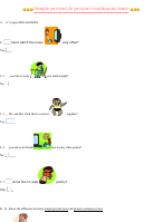
Simple Present and Present Continuous Tense
this exercise centers on the usage of DO and DOES as well as identifying whether a sentence is either simple or present continuous tense..
Level: elementary
Age: 10-14
|

Simple Past Irregular Verbs
An interactive game that a student can play as well as learn.
Level: elementary
Age: 10-14
|
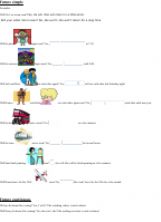
simple vs continuous future tense
a very simple yet fun exercise
Level: elementary
Age: 10-14
|
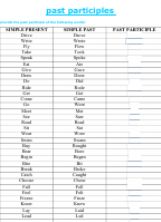
irregular past participles
while regular past participle verbs are merely understanding ( +d, or +ed) the irregular past participles are more on memorization since there is no rule to follow.
Level: elementary
Age: 10-14
|

Confusing word: GET
GET is a simple verb, however the word GET has different meanings. in this exercise, you will learn to differentiate GET into 7 different meanings. Enjoy!
Level: intermediate
Age: 10-100
|
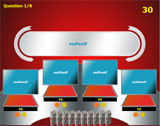
CAN/CAN´┐ŻT & HAVE TO/HAVEN´┐ŻT
who wants to be a millionaire kind of game
Level: elementary
Age: 6-14
|